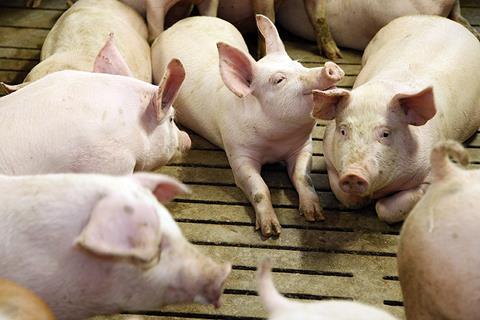Danish Crown is to ensure that in the future, pigs delivered to it must have been fed with 100% responsibly produced soy. Its goal was presented to the Soy Alliance in Denmark.

By 2025, the pigs from Danish Crown's owners will receive soy fodder which comes from producers who can prove that their production is sustainable and on farmland that hasn’t been used after illegal clearing of the Amazon rainforest.
Backdrop
About two-thirds of the soy that is produced in South America today is grown in areas that have been cultivated with crops for many years. However, deforestation of rainforests and other sensitive areas has also been carried out in the last 20-30 years. Politicians, consumers and NGOs in many parts of the world are focusing on the negative impact of deforestation, which they believe is caused by demand for soy for animal feed.
If the South American farmers and companies that handle soy could separate the aforementioned production areas, there would be plenty of sustainable and responsibly produced soy available. However, the ability to distinguish responsibly produced soy from other soy production remains limited. Danish Crown says it will help to change that.
"It will take time to get the definitions in place for areas that have not been deforested in violation of international agreements. However, we are confident that it will be done so that by 2025, all the soy that pigs from Danish Crown's owners will be produced in both sustainable and sound ways," said Preben Sunke, COO at Danish Crown.
The company's action plan for soy is part of the Group's sustainability strategy, which aims to reduce greenhouse gas emissions by 50% in 2030 and to be climate neutral by 2050.
"Improving the standards that exist is a long, tough move. We want to make real improvements in the countries and regions with which we trade. We can do this best if we make demands on the goods our owners receive, and directly on the manufacturers."
Soy is used for a variety of purposes in food production, but largely for animal feed. Annual soybean imports to Denmark in 2019 totalled 1.7 million tonnes or approx. 0.5% of the world's total production of soy.
Of the 1.7 million tonnes, a total of approx. 0.9 million tonnes is for pig feed in Denmark. Danish Crown's owners account for 38% of Danish pig production.
While it is Danish Crown's plan that all soy in the feed of Danish Crown's owners in 2025 contains responsibly produced soy, in 2020, the business will, on behalf of its owners, secure FEFAC-certified soy in increasing amounts, and along the way says it will buy credits which support the production of responsible soy.
Sunke continued: "Until the physical supply lines of responsible soy have been established, Danish Crown will, from 1st October 2020, supplement the actions with the purchase of RTRS or RTRS-equivalent credits which guarantee that no deforestation, whether illegal or legal, is taking place in sensitive forest areas. At the same time, we will work to establish a Danish industry solution where, as a combined industry, we will work for full FEFAC sustainable soy in 2025."
Traceability in the total value chain
Danish Crown confirmed it has chosen to prioritize a collaboration with FEFAC to ensure full traceability in the physical deliveries of soy. In this way, it see it takes responsibility for the total value chain ensuring a sustainable production of sustainable soy.
However, Preben Sunke also knows that sourcing of responsible and sustainable soy does not happen overnight, but to reach its goal, Danish Crown has demanded improvements to the criteria that FEFAC enforces.
"Improving the standards that exist is a long, tough move. We want to make real improvements in the countries and regions with which we trade. We can do this best if we make demands on the goods our owners receive, and directly on the manufacturers. Danish Crown expects FEFAC to implement an unambiguous and widely-recognized deforestation policy by 2025, with clear guidelines that protect against both illegal, and in some instances, legal deforestation, and which are third party-verified, with full traceability throughout the chain. Producing soy must not result in deforestation or restructuring of other habitats with high conservation value," said Sunke.
It is Danish Crown's assessment that the total additional cost for the Group using responsible soy through the planned program from the start will cost what corresponds to approx. 0.75 DKK per slaughtered pig.
This story was originally published on a previous version of the Meat Management website and so there may be some missing images and formatting issues.















